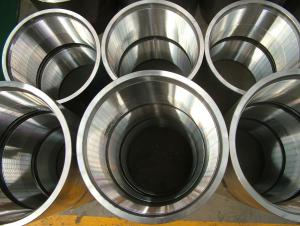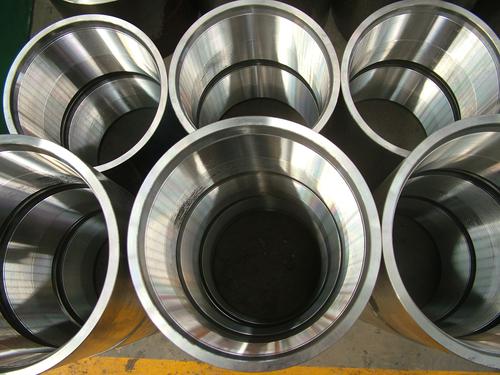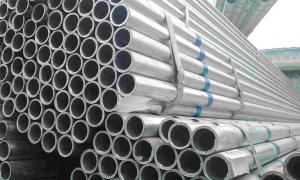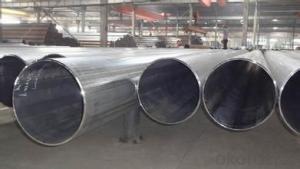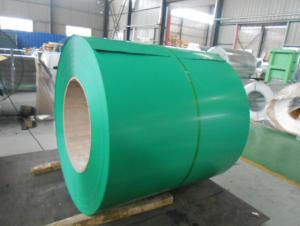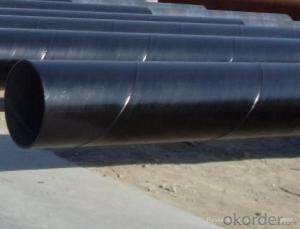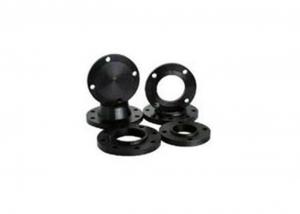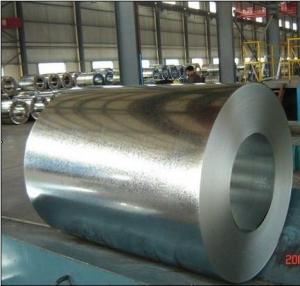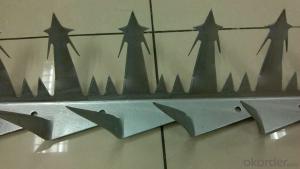Couplings for steel pipes
- Loading Port:
- China Main Port
- Payment Terms:
- TT OR LC
- Min Order Qty:
- -
- Supply Capability:
- -
OKorder Service Pledge
OKorder Financial Service
You Might Also Like
Std Ref.: API 5CT 5B ISO9001, 2008
Grade: J55,K55, N80-1,N80-Q,L80,C90,P110
Size: tubing 1.9"to4-1/2", casing 4-1/2"to13-3/8"
1.Grade: K55, N80-1, N80-Q, L80, C90, P110
2.We also supply permium thread products by customer's request
3.Size: tubing coupling from 1.9" to 4-1/2",Casing coupling fro4-1/2"to 13-3/8"
4.Type: NU, EU(tubing coupling), STC,LC,BTC(casing coupling).
5.Surface treatment: Whole phosphating, or inside phosphating and outside coating
6.Packing: By carton, wooden case, wooden pallet, or by requirements of customers
Otherwise, Our company manufactures and sells casing and tubing couplings,pup joints, tool joints, adapter pup-joints, adapter couplings, stabilizers, anchors of oil pumps and revolving sand gravitated device of well, etc. We always do business based on the principle of equality and mutual benefit, we provide the high quality and competitive price products.
- Q: Are steel pipes fire-resistant?
- Indeed, steel pipes possess fire-resistant qualities. Being a non-combustible substance, steel does not ignite or aid in the propagation of flames. Steel pipes exhibit elevated melting points and can endure extreme temperatures, rendering them exceptionally fire-resistant. Consequently, they find widespread utilization in critical areas necessitating fire safety measures, including fire sprinkler systems, fire hydrant systems, and fire-resistant architectural frameworks. Moreover, the fire resistance capabilities of steel pipes are reinforced by their renowned robustness and resilience.
- Q: What is DN50 for welded pipe?
- Refers to the use of welded steel pipe made of DN50 steel pipe, refers to the inside diameter is 50mm, the market of common DN50 pipe also refers to the 2 inch pipe, standard pipe: 3.5mm thickness, pipe diameter 60mm, the weight of 4.88kg/m theory. DN50 seamless steel pipe, commonly used in the market, has two specifications: 57mm, 60mm, and if no special instructions, 57mm is commonly used. The outer diameter of the welded pipe is only 60mm this specification.
- Q: What is the electrical conductivity of steel pipes?
- Steel pipes have a high electrical conductivity due to the metallic nature of steel. The electrical conductivity of steel pipes can vary depending on the specific composition and properties of the steel used. Generally, steel has a conductivity ranging from 6.99 × 10^6 to 9.64 × 10^6 siemens per meter (S/m) at room temperature. This conductivity allows steel pipes to efficiently conduct electricity and be used in various applications such as electrical transmission and grounding systems.
- Q: What is the role of steel pipes in power plants?
- Steel pipes play a crucial role in power plants as they are used for transporting various fluids, such as water, steam, and fuel, throughout the facility. These pipes are designed to withstand high temperatures, pressure, and corrosive environments, ensuring a safe and efficient operation of power generation equipment. They facilitate the circulation of cooling water, carry steam to drive turbines, and transport fuel to boilers, helping to generate electricity in power plants.
- Q: How are steel pipes used in offshore drilling platforms?
- Steel pipes are used in offshore drilling platforms for various purposes such as transporting drilling fluids, casing and cementing operations, as well as providing support and stability to the platform structure. These pipes are crucial in facilitating the extraction of oil and gas from beneath the seabed by enabling the safe and efficient transfer of fluids and materials during drilling operations.
- Q: Can steel pipes be used for pharmaceutical manufacturing?
- Yes, steel pipes can be used for pharmaceutical manufacturing. Steel pipes are commonly used in various industries, including pharmaceutical manufacturing, due to their durability, strength, and resistance to corrosion. In pharmaceutical manufacturing, steel pipes are primarily used for fluid transportation, such as the transfer of chemicals, solvents, and other raw materials. They are also used for the distribution of process water, steam, and other utilities. Stainless steel pipes are particularly preferred in pharmaceutical manufacturing as they are highly resistant to corrosion and can withstand high temperatures and pressures. Moreover, stainless steel pipes have smooth surfaces, which prevent the accumulation of particles and facilitate easy cleaning and sterilization, essential requirements in pharmaceutical production. Overall, steel pipes are a reliable and suitable option for pharmaceutical manufacturing due to their robustness, resistance to corrosion, and ability to meet the stringent cleanliness and hygiene standards of the industry.
- Q: Are steel pipes suitable for wastewater pumping stations?
- Yes, steel pipes are suitable for wastewater pumping stations. Steel pipes are known for their durability and strength, making them an excellent choice for handling the harsh conditions and high-pressure requirements of wastewater pumping stations. They have the ability to withstand the corrosive nature of wastewater and can resist damage caused by chemicals and other aggressive substances commonly found in wastewater. Additionally, steel pipes are available in various sizes and thicknesses, allowing for customization to meet the specific needs of the pumping station. Furthermore, steel pipes can be easily welded and joined together, ensuring a secure and leak-free system. Overall, steel pipes offer a reliable and long-lasting solution for wastewater pumping stations.
- Q: How do steel pipes handle abrasive materials?
- Steel pipes are highly durable and resistant to abrasion, making them well-suited to handle abrasive materials. The smooth interior surface of steel pipes minimizes friction and wear caused by the movement of such materials, ensuring their efficient and effective transportation.
- Q: What is the typical diameter range of steel pipes?
- The typical diameter range of steel pipes can vary widely, but it commonly falls between 0.5 inches to 48 inches.
- Q: Are galvanized steel tubes the same as degaussing steel tubes?
- And the method of magnetic field created by means of electromagnets or permanent magnets. For analysis of residual magnetism, see table (1), select the demagnetizing method and system in combination with the conditions of the construction site (for example, given equipment, etc.). Table 1 magnetic remanence grade and welding conditions
Send your message to us
Couplings for steel pipes
- Loading Port:
- China Main Port
- Payment Terms:
- TT OR LC
- Min Order Qty:
- -
- Supply Capability:
- -
OKorder Service Pledge
OKorder Financial Service
Similar products
Hot products
Hot Searches
Related keywords
